Spring 2022
4
So Little Is a Stone: Reflections from RWW’s 2021 Bread Loaf Participants
Hannah D. Markley, Editor (Class of 2023)
So Little Is a Stone: Reflections from RWW’s 2021 Bread Loaf Participants
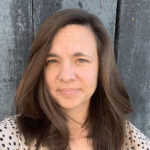
Hannah D. Markley
Editor
Class of 2023
Early last year, RWW director Rick Barot sent out an email notifying RWW students that the program would fund the tuition for anyone who was accepted to the 2021 Bread Loaf Writers Conference. In August, only shortly after the RWW residency, four students and recent alums—Liz, Shawna, Lynette, and Preeti—attended a virtual edition of the conference.
In the months after the conference, the participants underwent large and small changes: moves, travel, hours at work, celebrations with family, and drafts of essays and poems and, as with any experience, so much of the conference was forgotten to make way for the dailiness of living. Yet the time between last August’s conference and present also reveals what may remain with them in the years ahead.
As I wrote to ask the participants for their reflections, Naomi Shihab Nye's poem "Burning the Old Year" came to mind. She writes, "So much of any year is flammable, / lists of vegetables, partial poems. / Orange swirling flame of days, / so little is a stone." I asked: What is your "stone" from Bread Loaf? What will you carry into this new year and into your post-MFA writing life? Where and when did that experience surprise and challenge you?
Much gratitude to Liz, Shawna, Lynette, and Preeti for considering these questions, and now, I’m delighted to share their responses with you.
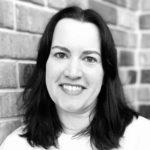
Liz Culpepper
Class of 2021
It’s true, what the poem’s speaker says: “So little is a stone.” As I look back on my experience with Bread Loaf—given the virtual format of the conference and the fact that it followed fast after my graduation from RWW and in the midst of a major move for our family—there are several “stones” that continue to resonate in my life as I carry them forward.
First: the power of a stellar workshop to activate the work of writers at any level and the deep soul satisfaction that I derive from helping writers discover hidden areas of energy within essays and longer works. Nothing is as powerful as shared stories.
Second: the opportunity to speak with an editor and an agent about my work. These conversations illuminated the book proposal process and led to renewed clarity and confidence about what is important to me as an artist.
Third: thanks to an introduction from a workshop mate after the conference, I made a friend. We are both Texas-born writers and military spouses. Our connection makes me think, makes me laugh, and gives me relief.
I’m grateful for what I gained from Bread Loaf. Thank you, RWW.
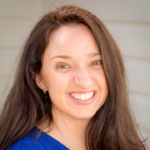
Shawna Ervin
Class of 2021
Before Rick emailed the RWW community to let us know about the Bread Loaf scholarship, I had only a vague idea of what it was. I knew it was somewhere out East and likely impossible for me to attend due to price and location.
I am so glad the scholarship was available, and I was able to take advantage of it. I thoroughly enjoyed my time at the virtual Bread Loaf last summer. I was in Reyna Grande’s workshop along with fellow RWW writer Liz Culpepper.
Our group was amazing. There were writers who were working on a second book, writers already represented by agents, and writers who had been to Bread Loaf many times. Everyone was respectful and generous with their feedback, some even offering to give me feedback on my book proposal and query letter after Bread Loaf was over. I was so impressed by the community at Bread Loaf.
I was also able to meet with two agents, both of whom were able to help me understand my memoir better and what to do next. I’ve been stuck for some time after a flurry of rejection, so it felt good to see and hear understanding and support on the other side of a screen.
I am so grateful for the opportunity to be able to attend Bread Loaf. Thank you to Rick and RWW for arranging the scholarship so I could have this experience.
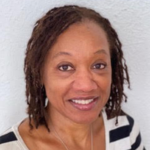
Lynette Vialet
Class of 2022
Acceptance to Bread Loaf, for me, was akin to striking gold. Not the best comparison, but hear me out.
In gold mining it takes years, on average ten years to explore a site, develop a plan, before the active operation—to extract the rock and ore into a metallic alloy, known as dore—60% to 90% pure.
Bread Loaf, founded in 1926, is the standard for talks and workshops. Despite being virtual, the daily lectures and craft talks filled me up. I struck gold with Peter Ho Davies' presentation, “The Art of Revision.” Ho Davies writes novels, yet as a nonfiction aficionado I ingested his ideas whole. He talked about revision in a new way, at least to me. Sometimes those sore thumbs, the odd details that everyone in the workshop questions—he called them the elephant in the room—are not to be jettisoned but expanded upon, because there may be a kernel that opens to a new surprise, even the core of the story or essay. Another nugget was doneness. So often the desire is to be done, but, he said, it may not be the end for the reader. How it feels and is seen through the reader’s eye is often the answer to the ending. Keep going, he recommended, aim for discovery, investigation, accumulating more knowledge, and getting to the heart of your intention. This is only a sample of what I learned.
I think of Bread Loaf as RWW residency on steroids. I would love to have another dose.
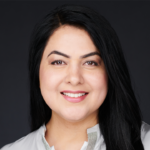
Preeti Parikh
Class of 2021
I want to begin by offering my thanks to RWW and the Bread Loaf Writers’ Conference for their sponsorship and support. I was fortunate to attend both weeks of the 2021 (virtual) conference and participate in workshop sessions with poets Victoria Chang and Matthew Olzmann. The circumstances weren’t ideal or preplanned—I was overseas in the aftermath of a health emergency with my father. An almost eleven-hour time difference between the Bread Loaf Mountain in Vermont and my parents’ home in NCR, India, meant that I was now attending the conference in the nighttime and early morning hours. Aided by copious amounts of coffee, I found myself in front of my computer screen each night, watching intently, listening, and talking into my headphones. The work of my peers was inspiring, and the workshop deliberations were comprehensive, collaborative, and intense. The faculty offered cogent advice during group sessions and in one-on-one meetings. Even in the quiet isolation of those late hours, I felt sustained and invigorated.
The Lecture Series was another highlight of my conference experience, and I was especially enthused by Peter Ho Davies’s “The Art of Revision,” Ana Menéndez’s presentation on the fragmented narrative, and Matthew Olzmann’s notes on defamiliarization. In her talk, “Debut Books of Poetry: Notes on Sounding Like Yourself,” Brenda Shaughnessy stresses the importance of the first poem of one’s first book, likening it to a north star that guides us to a lifetime of poetry. She asks, “When you write or choose your first poem in your debut, what essence will lie mystically in it? What truths of your own will it set you on the path toward?” In the months since then, I’ve found myself returning to these questions again and again.
Author Biographies
Liz Culpepper is a lyric essayist who turns a critical eye toward her experiences as an American military spouse. She currently lives in England with her family, and after years of residing elsewhere, thinks of central Texas as home. Find her on Instagram at @liz.culpepper or at lizculpepper.com.
Shawna Ervin received a fellowship from the Sustainable Arts Foundation to attend the Mineral School residency and is a Pushcart nominee. Recent publications include Tampa Review, Cagibi, Euphony Journal, Evening Street Review, Rappahannock Review, The Delmarva Review, The Maine Review, Summerset Review, Superstition Review, Sweet: A Literary Confection, and others. Her poetry chapbook Mother Lines was published by Finishing Line Press in 2020.
Lynette Vialet is a physician aspiring to be a writer. Her writing melds medicine with cultural identity, race, gender, class, and the ineffable. A long-time member of Lighthouse Writers Workshop, her work has appeared in Balance, The Permanente Journal, and was longlisted for the 2021 Fish Short Memoir Prize.
Preeti Parikh is an Indian American writer living in Ohio. With a past educational background in medicine, she graduated from the RWW MFA program in 2021 and is currently working on a book-length poetry collection. Preeti’s poems and essays appear or are forthcoming in Nonwhite and Woman, Kweli Journal, Literary Mama, and elsewhere.
